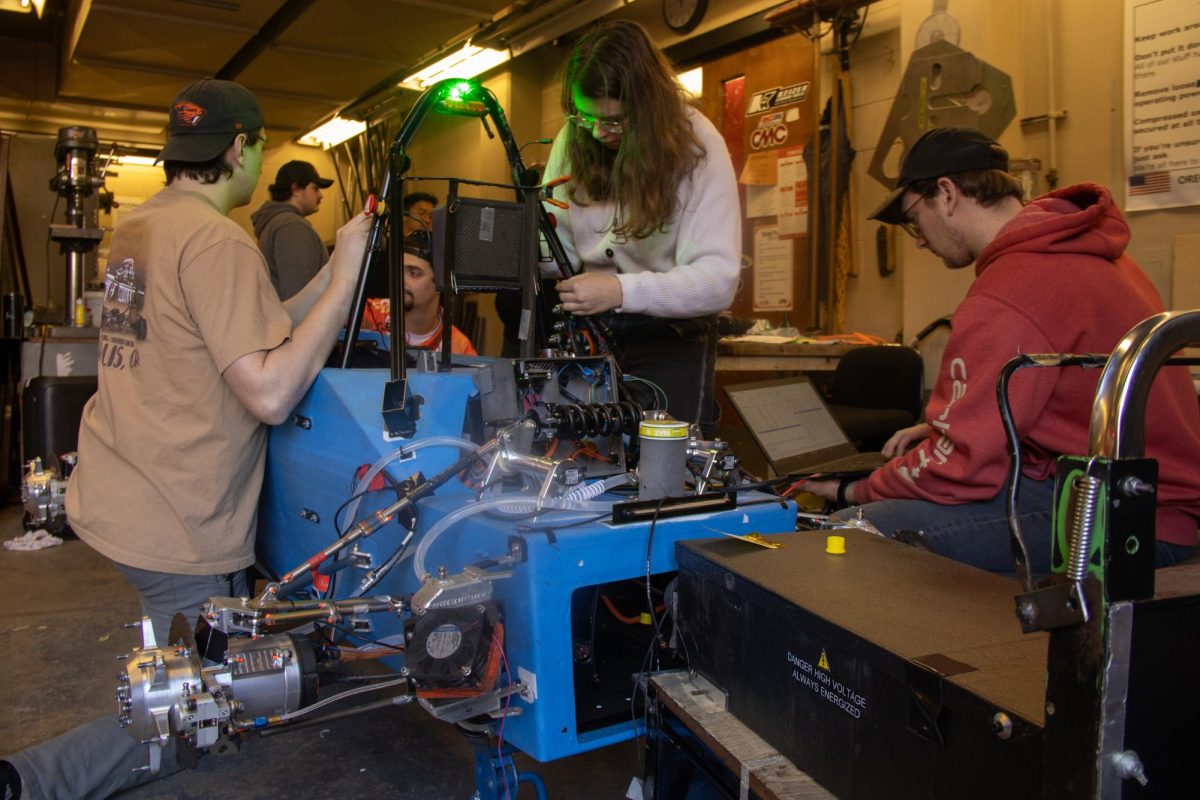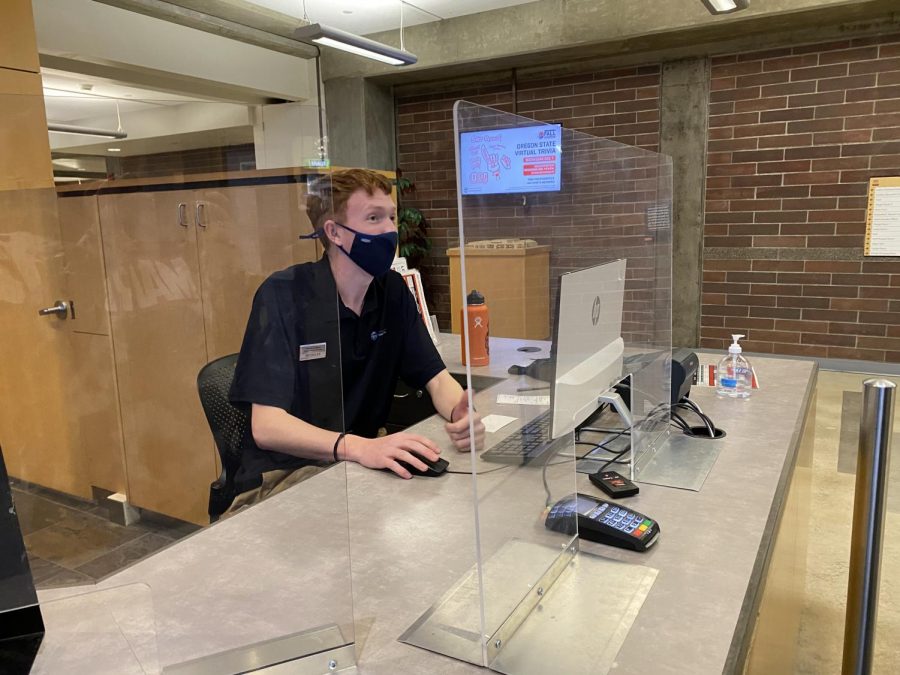Student Fee Committee votes to increase student fees, passes $15 wage increase
Kelsy Valentine, Campus Editor
Nicholas Bolin, a Dixon Recreation Center employee, checks students in on Dec. 5. Dixon employees are funded by student fees under Recreational Sports, which is one of the eight units of the Student Fee Committee.
December 5, 2021
Oregon State University’s Student Fee Committee has voted overall to increase student fees for each student per term for the 2022-23 academic year.
The SFC held their final meeting of fall term on Dec. 3 to vote on the student fees for the 2022-23 fiscal year for their eight student fee funded units, including Associated Students of Oregon State University, Student Experience and Engagement, Performing Arts Board, Recreational Sports, Intercollegiate Athletics, Family Resource Center, Human Services Resource Center and the Memorial Union.
For the 2022-23 fiscal year, the SFC has voted to pass an overall 5.25% increase of student fees, totaling an increase of $23.90 for students during the fall, winter and spring terms. For the summer term, the SFC voted on a 2.32% or $5.47 increase from the 2022 fiscal year.
Orange Media Network, which The Daily Barometer is a part of, is funded by SEE and will be impacted by these fee increases.
Within the SFC, student fees are split into two categories: operating budgets and decision packages. A unit’s operating budget covers the fees units need to continue a basic level of operation while decision packages are extra costs units request to cover expenses such as building costs or hiring a new employee.
Even though total student fees were increased for the fall, winter and spring terms in the 2022-23 fiscal year, the SFC actually voted to decrease student fees that go toward the operating budgets for each of the eight units.
During the 2021-22 academic year, the total operating budget fees each student paid for the eight student fee funded units was $455.31. For the 2022-23 academic year, however, the SFC voted to lower this number 1.20% or by $5.44 to a total of $449.87 that each student will pay toward all eight units.
According to Mak Khan, the SFC chair, this drop in operating budget fees is due to a projected increase in enrollment for the upcoming academic year as opposed to last year, when OSU projected an 8% decline in enrollment.
“That was what we were working with at the time,” Khan said. “But when we actually started the year, it wasn’t as bad. Enrollment didn’t go down 8%. So, for next year, we are projecting a much better picture.”
Even though operating fees will not be as high for each student per term, Khan said the units will still be getting more revenue because of the increased enrollment.
The SFC did vote, however, to increase the student fees for decision packages, which is the reason student fees still increase overall for the 2022-23 fiscal year. The SFC voted to increase the decision packages for all eight units by 6.44% to $29.34.
Included in these decision packages was the increased $15 minimum wage for all student fee funded units, which the SFC voted to pass for every unit that included it as a decision package.
“The FRC didn’t have a decision package for [the $15 minimum wage] but they’re still going to be paying $15 wages for FY23, they’ll just use money from their fund balance to fund that,” Khan said. “The HSRC also did not have a decision package because they’re already paying $17 as a minimum so they didn’t need any additional money to pay $15.”
For the summer term in the 2023 fiscal year, the proposed rate for the operating budgets passed by the SFC is $240.57. There are no decision packages for the summer term, so student fees would increase only with operating costs.
According to Khan, the fee levels passed by the SFC are not final, but rather proposals that they offer to the ASOSU Congress.
“In winter term, congress will meet in joint sessions because there’s two houses of congress, the house of representatives and the senate,” Khan said. “So they meet in a joint session to go over these fee bills in the first part of winter term.”
If congress approves the student fees, they then go to the ASOSU president, Khan said. If the ASOSU president signs the student fees into law, they then go to the OSU president, who takes it to the Board of Trustees.
“If congress votes something down or if the ASOSU president vetoes something, it goes to mediation and then there’s another cycle to that process,” Khan said.




















































































![Newspaper clipping from February 25, 1970 in the Daily Barometer showing an article written by Bob Allen, past Barometer Editor. This article was written to spotlight both the student body’s lack of participation with student government at the time in conjunction with their class representatives response. [It’s important to note ASOSU was not structured identically to today’s standards, likely having a president on behalf of each class work together as one entity as opposed to one president representing all classes.]](https://dailybaro.orangemedianetwork.com/wp-content/uploads/2025/03/Screenshot-2025-03-12-1.00.42-PM-e1741811160853.png)
























